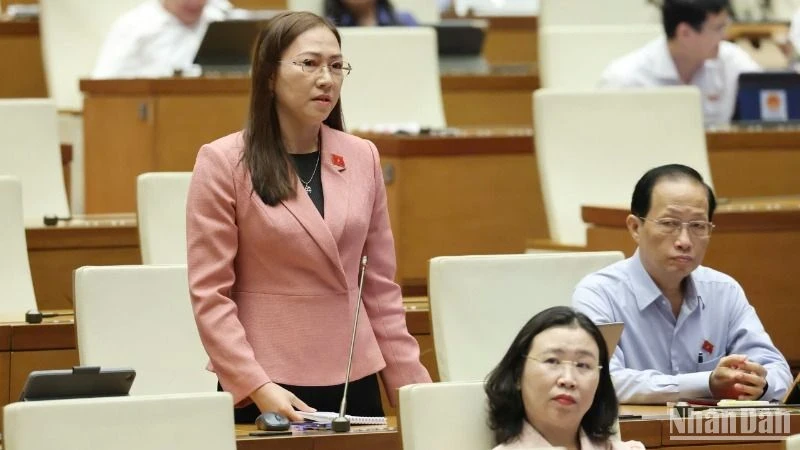
Recommendation for comprehensive review of obesogenic products
Morning of May 9, continued At the 9th session, the National Assembly discussed in the hall a number of contents with different opinions. Draft Law on Special Consumption Tax (amended). In which, the proposal to add sugary soft drinks to the list of subjects subject to special consumption tax is the content that received many comments at the discussion session.
Because this item has just been added to the taxable objects, the National Assembly Standing Committee believes that there needs to be an implementation roadmap so that businesses have time to adapt, adjust production and business plans, and gradually switch to products with low sugar content.
The National Assembly Standing Committee agreed with the proposal of the drafting agency in the direction of stipulating the implementation roadmap: From 2027, apply a tax rate of 8%, from 2028, apply a tax rate of 10%.
Speaking at the discussion, delegate Nguyen Thi Yen Nhi (Ben Tre delegation) expressed her agreement with adding sugary soft drinks to the list of subjects subject to special consumption tax to limit excessive sugar consumption and guide people's consumption.
However, according to the delegate, this regulation is "not a magic wand" to change people's consumption habits, but requires propaganda andeducation to guide consumption.
In particular, the health sector needs to have stronger warnings about the harmful effects of abusing sugary products, and the involvement of many sectors and levels can change people's consumption habits.
The female delegate also noted that drinks with high sugar content are being sold widely on sidewalks, streets, and street vendors, but are not affected by this tax, so management measures are needed.
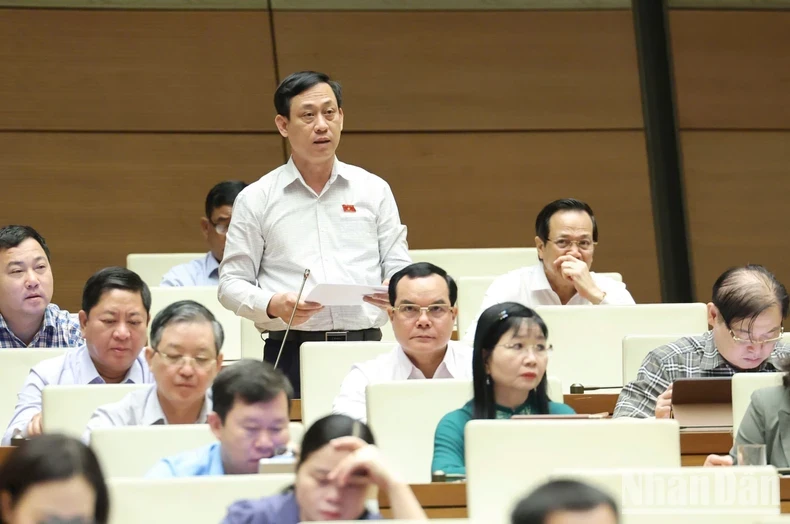
Sharing the same view, delegate Mai Van Hai (Thanh Hoa) also pointed out the problem when many other products have higher sugar content than soft drinks but are not subject to tax, such as candy, milk and many other items. Therefore, Mr. Hai suggested carefully assessing the impact and not taxing sugary soft drinks at this time.
Also suggesting that this regulation be considered, delegate Pham Van Hoa (Dong Thap Delegation) said that a more objective and comprehensive assessment is needed. According to him, it cannot be confirmed that sugary soft drinks are the main cause of obesity in children.
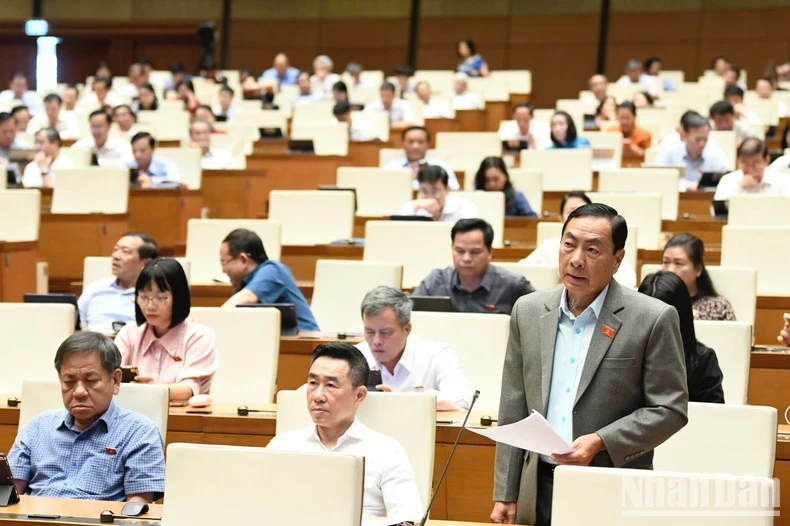
“It is not certain that sugary soft drinks cause obesity, because there are many other products that are affecting children’s health,” Mr. Hoa stated. He cited the fact that children are especially fond of milk tea and sweet foods sold widely in street stalls, while these products are not subject to tax regulation like bottled sugary soft drinks.
Looking at it from a broader perspective, delegate Nguyen Thi Thu Dung (Thai Binh) said that in the context of the economy being under a lot of pressure from the outside, taxing sugary soft drinks needs to be carefully considered.
According to the female delegate, increasing taxes on sugary soft drinks will have multi-dimensional impacts on many groups of the economy, both directly and indirectly.
She also analyzed that when the special consumption tax increases, it may unintentionally promote the consumption of handmade, informally produced beverage products that are difficult to control in terms of quality and food safety, or consumers may switch to other types of drinks with equivalent sugar content but are not subject to tax, such as milk tea, ready-to-drink coffee, and juices sold on the street that are difficult to control in terms of quality and sugar content.
In the context of the socio-economic situation still facing many challenges, declining purchasing power, difficulties in production and business, etc., the female delegate proposed to postpone the tax on sugary soft drinks from 2028 with a gradual increase, for example, an increase of 3-5-7% so that businesses can gradually adapt, reducing the cost burden for businesses and consumers.
It is necessary to impose special consumption tax on gasoline.
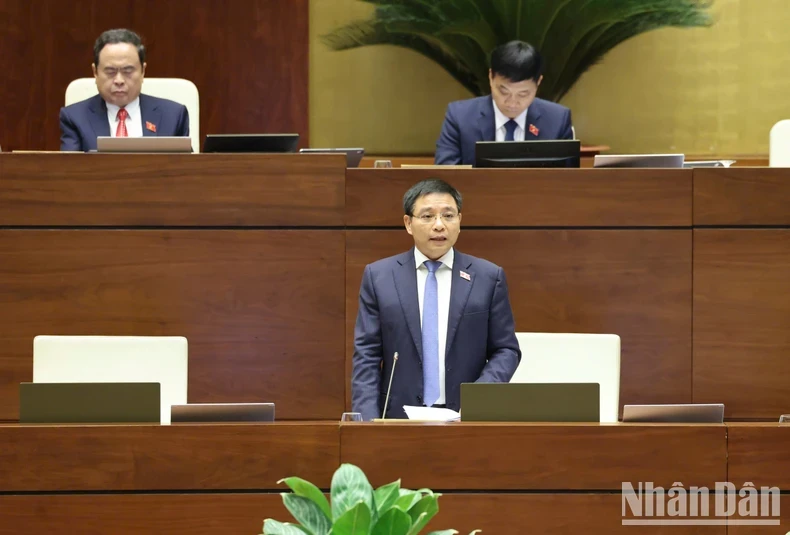
At the end of the discussion session, Minister of Finance Nguyen Van Thang explained and clarified a number of issues raised by National Assembly delegates.
According to the Minister, regarding sugary soft drinks, the drafting agency and the auditing agency have accepted the direction of extending the tax according to the deadline for application at the rate of 8% in 2027 and 10% in 2028. The drafting agency will review to consider which items will be applied from January 1, 2026 and which items will be postponed to 2027. This will both achieve the National Assembly's goal and avoid shocks to businesses.
The Minister said that according to the national standards on soft drinks announced by the Ministry of Science and Technology, soft drinks are ready-to-drink products for thirst quenching, made from water and containing sugar, additives...
According to this concept, types of water not subject to special consumption tax include milk and dairy products, liquid foods used for nutritional purposes, bottled mineral water, fruit and vegetable juice, coconut water, etc.
On taxation with Air conditioning, the information minister said, has now seen a handful of countries taxing refrigerants to save energy, in connection with environmental pollution. This item was previously taxed.
This time, the draft law stipulates that air conditioners with a capacity of over 18,000 BTU to 90,000 BTU are subject to special consumption tax. At today's discussion session, many delegates proposed to increase the capacity. Therefore, the drafting agency will accept and increase this capacity to over 24,000 BTU to under 90,000 BTU to be subject to tax.
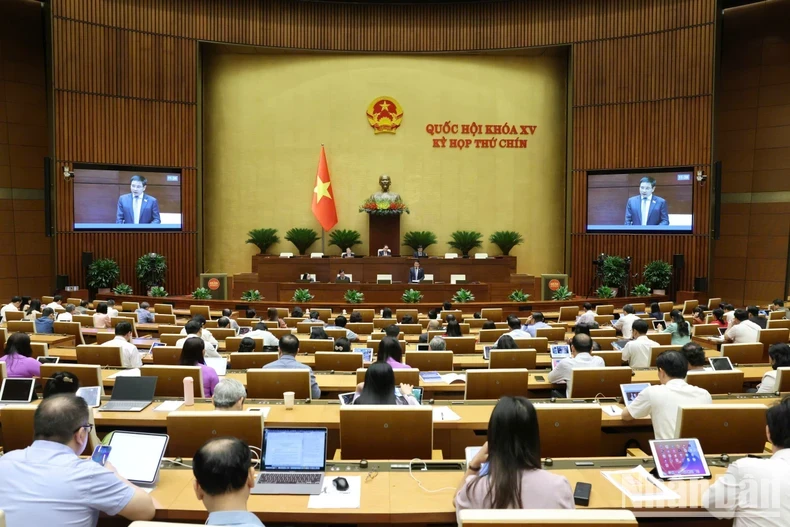
Regarding the tax on gasoline, the Minister of Finance said that the special consumption tax on gasoline has been implemented since 1998. With the commitment to reduce emissions to zero by 2050, Mr. Thang affirmed that it is "impossible not to impose special consumption tax" on gasoline.
According to the Minister, the Prime Minister committed at the COP 26 Conference to the goal of reducing emissions to zero by 2050. Mr. Thang emphasized that this is a challenging commitment for Vietnam. Currently, European countries are implementing very drastic measures to reduce emissions.
“Vietnam’s environmental pollution is getting worse, with vehicles in the transportation sector, if we continue to encourage not taxing gasoline, it will be very difficult to change behavior. If we want to use electric vehicles, metro systems... more, we must implement many solutions, including solutions related to gasoline,” Minister Nguyen Van Thang emphasized.
According to him, a delegate said that gasoline is currently subject to two types of taxes and fees, but currently in the world, most large and developed countries impose taxes and fees, only with different names, some countries call it CO2 fee, CO2 tax.
“Excise tax and fees have different but complementary objectives. Excise tax focuses on regulating consumer behavior and increasing budget revenue, while environmental protection fees aim to generate funds for environmental projects,” the Minister emphasized.
According to Mr. Thang, the imposition of taxes and fees is consistent with Vietnam's commitment at the COP 26 Conference as well as the goal of achieving net zero emissions by 2050. In addition, the sum of these two taxes and fees is much lower than that of other countries, especially in Europe.
Source: https://baolangson.vn/ap-thue-nuoc-ngot-khong-phai-chiec-dua-than-de-thay-doi-thoi-quen-tieu-dung-5046570.html



![[Photo] Prime Minister Pham Minh Chinh attends the groundbreaking ceremony of Trump International Hung Yen Project](https://vphoto.vietnam.vn/thumb/1200x675/vietnam/resource/IMAGE/2025/5/21/ca84b87a74da4cddb2992a86966284cf)
![[Photo] Prime Minister Pham Minh Chinh receives Rabbi Yoav Ben Tzur, Israeli Minister of Labor](https://vphoto.vietnam.vn/thumb/1200x675/vietnam/resource/IMAGE/2025/5/21/511bf6664512413ca5a275cbf3fb2f65)
![[Photo] Scientific workshop "Building a socialist model associated with socialist people in Hai Phong city in the period of 2025-2030 and the following years"](https://vphoto.vietnam.vn/thumb/1200x675/vietnam/resource/IMAGE/2025/5/21/5098e06c813243b1bf5670f9dc20ad0a)
![[Photo] Determining the pairs in the team semi-finals of the National Table Tennis Championship of Nhan Dan Newspaper](https://vphoto.vietnam.vn/thumb/1200x675/vietnam/resource/IMAGE/2025/5/21/eacbf7ae6a59497e9ae5da8e63d227bf)

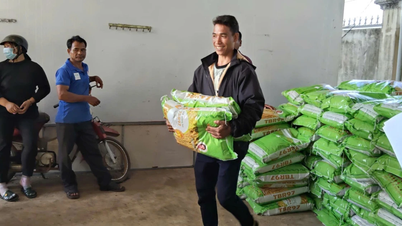





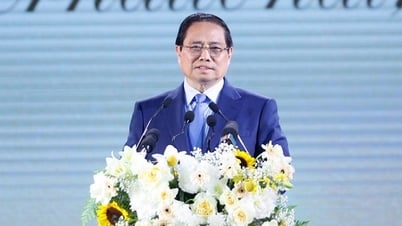

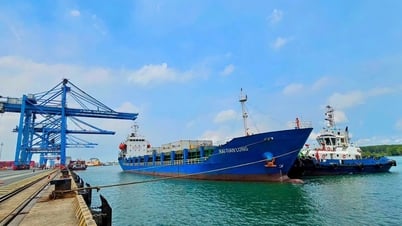







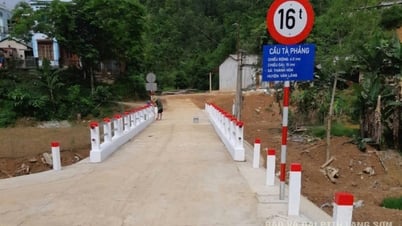
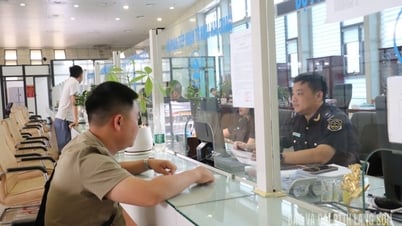
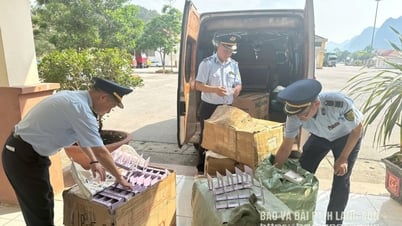


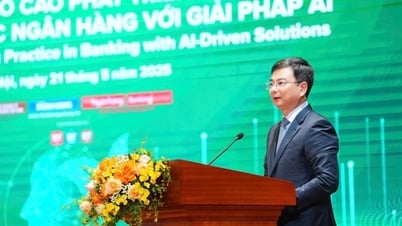



















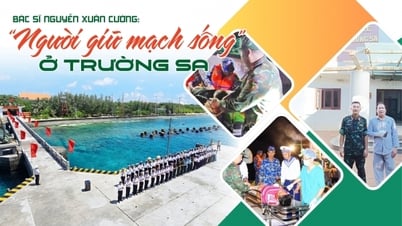













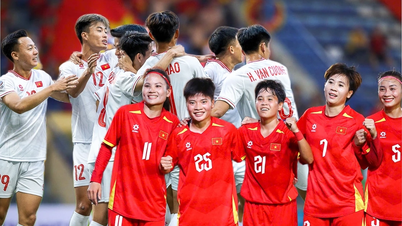

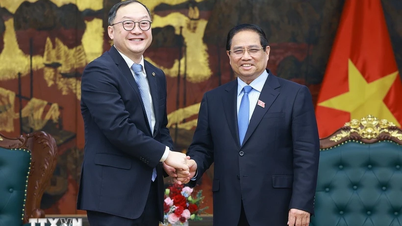



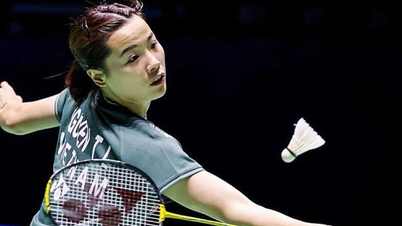



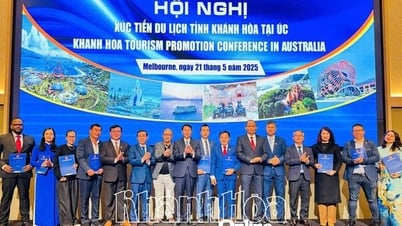
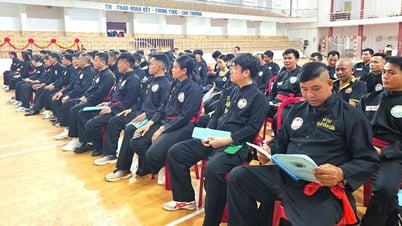

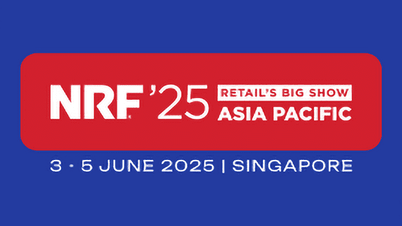

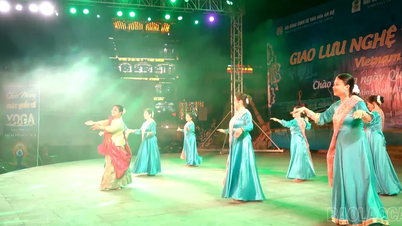

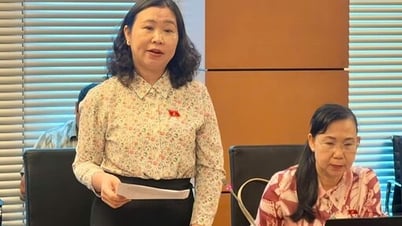












Comment (0)